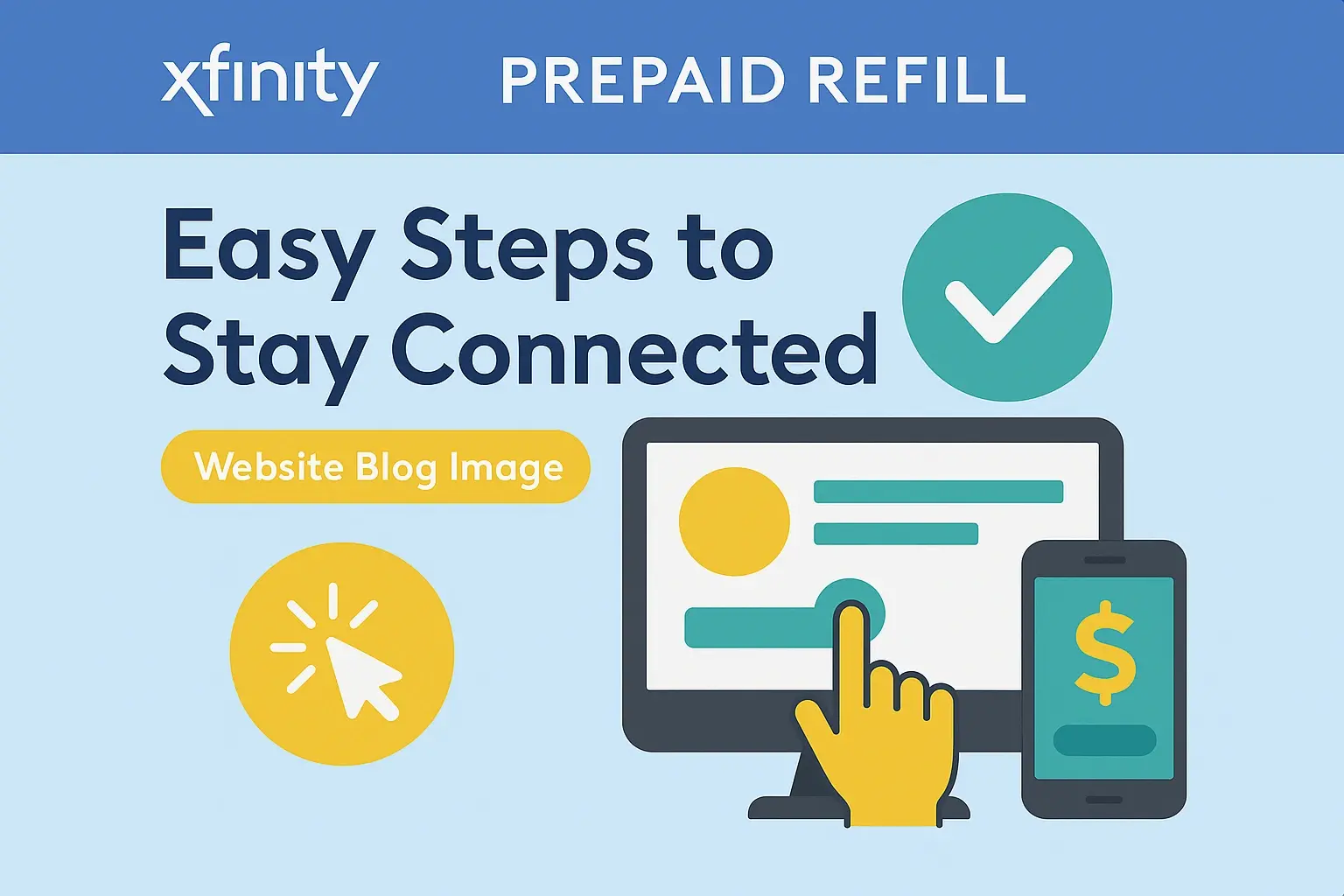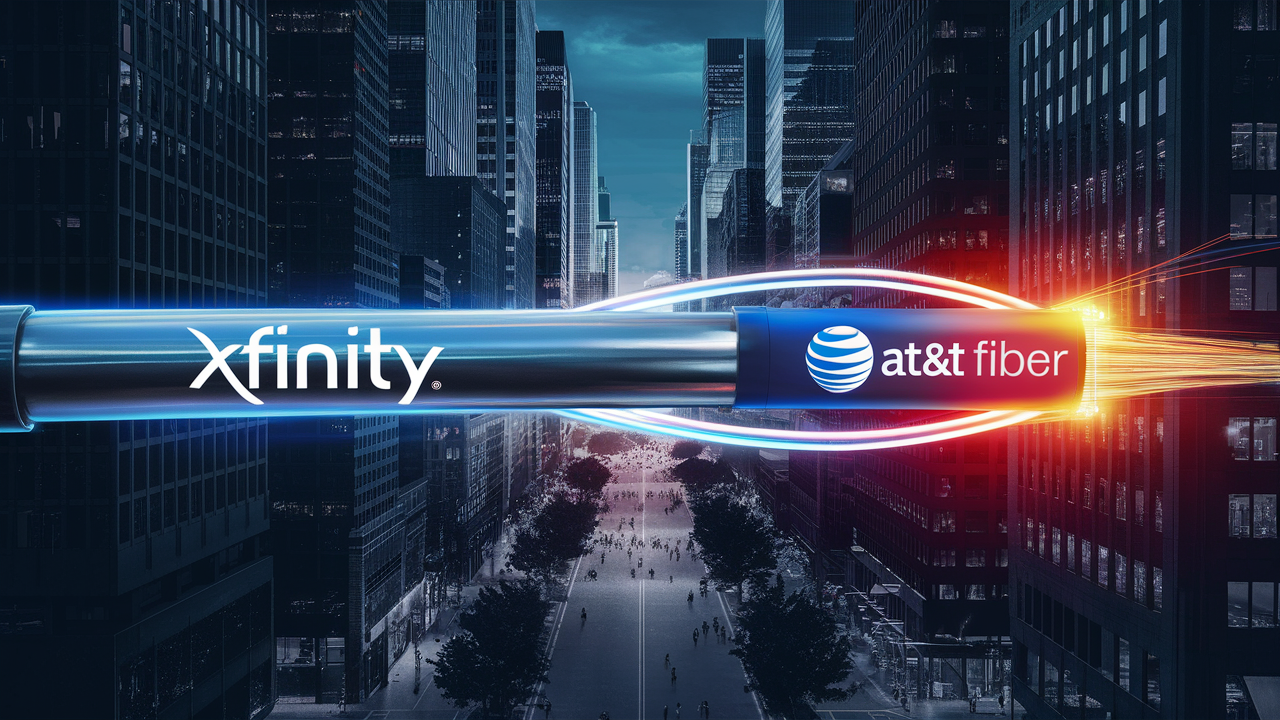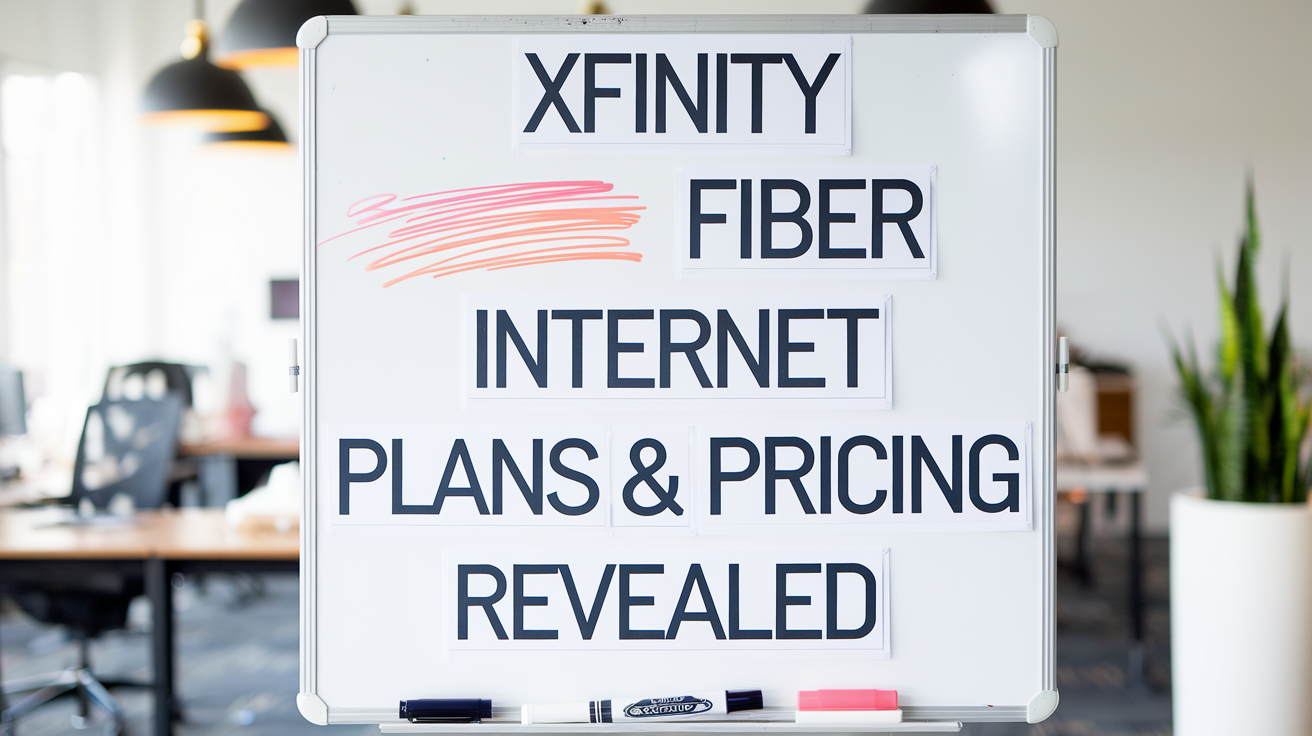Unlocking the Best Comcast Business Internet Deals

Discover how to secure the most advantageous Comcast Business Internet deals in 2025. This comprehensive guide empowers you with the knowledge to navigate plans, understand pricing, and negotiate effectively, ensuring your business gets the speed and reliability it needs at the best possible value.
Understanding Comcast Business Internet
Comcast Business, a subsidiary of the telecommunications giant Comcast, offers a robust suite of internet, voice, and networking solutions tailored for businesses of all sizes. Their business-grade internet services are designed to provide the consistent speeds, high uptime, and dedicated support that commercial operations demand, differentiating them significantly from residential offerings. For businesses in 2025, the need for reliable, high-speed internet is not just a convenience; it's a fundamental requirement for operations, customer engagement, and competitive advantage. Understanding the core offerings and value proposition of Comcast Business Internet is the first step in unlocking the best deals.
The Comcast Business Advantage
What sets Comcast Business apart is its focus on the unique needs of commercial clients. This includes features like:
- Symmetrical Upload/Download Speeds: Crucial for businesses that rely heavily on cloud services, video conferencing, and large file transfers.
- Guaranteed Uptime SLAs: Service Level Agreements that provide assurances and potential credits for significant service disruptions.
- Dedicated Business Support: Prioritized customer service with technicians trained to address business-specific issues.
- Static IP Addresses: Essential for hosting servers, VPNs, and other network configurations that require a consistent, identifiable online presence.
- Enhanced Security Features: Often bundled or available as add-ons, offering protection against cyber threats.
Why Choose Comcast Business in 2025?
The digital landscape of 2025 is characterized by increasing reliance on cloud-based applications, remote workforces, and sophisticated customer interaction platforms. Businesses need internet that can keep pace. Comcast Business leverages its extensive fiber-optic network to deliver these capabilities. Their commitment to network upgrades and expansion means that businesses can expect improved performance and wider availability of high-speed tiers. For small to medium-sized businesses (SMBs) and even larger enterprises, the scalability and reliability of Comcast's infrastructure are key selling points. When looking for deals, it's important to understand that the value extends beyond just the monthly price; it encompasses the operational continuity and growth potential enabled by their service.
Key Factors in Comcast Business Internet Deals
Securing the best Comcast Business Internet deal in 2025 involves more than just picking the cheapest plan. Several critical factors influence the final price and the overall value you receive. Understanding these elements will equip you to negotiate effectively and make an informed decision that aligns with your business objectives.
1. Speed Tiers and Bandwidth Requirements
Comcast Business offers a range of internet speeds, from basic tiers suitable for light browsing and email to ultra-high-speed fiber optic connections capable of supporting demanding applications. The speed you need directly impacts the price.
- Assessing Your Needs: Before looking at deals, accurately gauge your business's bandwidth consumption. Consider the number of employees, types of applications used (VoIP, video conferencing, cloud storage, large file uploads/downloads), and the number of connected devices. In 2025, with the proliferation of 4K video and AI-driven tools, bandwidth demands are only increasing.
- Over-provisioning: Many plans offer speeds slightly higher than advertised (over-provisioning) to ensure a consistent experience. Understand what this means for your chosen tier.
- Symmetrical vs. Asymmetrical: For businesses with significant upload needs, symmetrical speeds (equal upload and download) are paramount. These plans are often more expensive but essential for certain operations.
2. Contract Length and Commitment
Comcast Business, like most ISPs, typically offers lower monthly rates in exchange for a longer contract commitment.
- Standard Terms: Common contract lengths are 1, 2, or 3 years.
- Promotional Pricing: Deals are often tied to these longer terms. Breaking a contract early can incur significant penalties.
- Flexibility: Businesses that anticipate frequent changes in location or operational needs might prefer shorter terms, though this usually comes at a higher monthly cost.
3. Bundling Services
Comcast Business offers more than just internet. Bundling internet with services like phone (VoIP), TV, or advanced security solutions can often lead to discounts.
- Integrated Solutions: For businesses looking for a single provider for multiple communication needs, bundling can simplify billing and management.
- Cost Savings: The combined price of bundled services is frequently lower than purchasing each service individually from different providers.
- Evaluate Necessity: Ensure you actually need the bundled services. Paying for unused features negates any potential savings.
4. Equipment Costs
While some plans may include modem/router rental, others might require a purchase or have separate monthly fees.
- Rental Fees: These can add up over the contract term.
- Purchasing Equipment: Sometimes, buying a compatible modem/router upfront can be more cost-effective in the long run. Always verify compatibility with Comcast.
- Installation Fees: Be aware of any one-time installation or activation fees.
5. Promotional Offers and Discounts
Comcast frequently runs promotional offers, especially for new customers or for specific service packages.
- New Customer Incentives: These can include discounted rates for the first 6-12 months, waived installation fees, or free equipment upgrades.
- Limited-Time Offers: Keep an eye out for seasonal or event-based promotions.
- Negotiation Leverage: Knowing about ongoing promotions can give you leverage when negotiating your own deal.
6. Location and Availability
The specific deals available can vary significantly based on your business's geographic location. Areas with more robust Comcast infrastructure may have access to higher speeds and more competitive pricing.
- Network Investment: Areas where Comcast has invested heavily in fiber deployment often present better opportunities for high-speed, reliable internet.
- Competitive Landscape: Pricing and deals can also be influenced by the presence of competing ISPs in your area.
Navigating Comcast Business Plans and Pricing (2025)
Understanding the current landscape of Comcast Business internet plans and their associated pricing in 2025 is crucial for identifying the best deals. While exact pricing fluctuates and is often customized, here’s a breakdown of common offerings and what to expect.
Common Comcast Business Internet Tiers (Illustrative 2025 Data)
Comcast Business typically structures its offerings around speed. The following are illustrative examples of what you might find, with prices being estimates and subject to change based on location, contract, and promotions.
| Plan Name/Speed Tier | Download Speed | Upload Speed | Typical Business Use Case | Estimated Monthly Price (Without Promotions) |
|---|---|---|---|---|
| Business Performance Internet | Up to 100 Mbps | Up to 10 Mbps | Small offices, basic web browsing, email, single-user VoIP. | $70 - $90 |
| Business Pro Internet | Up to 300 Mbps | Up to 20 Mbps | Growing businesses, multiple users, moderate cloud usage, video conferencing. | $90 - $120 |
| Business Ultra Internet | Up to 600 Mbps | Up to 35 Mbps | Medium-sized businesses, heavy cloud reliance, frequent large file transfers, multiple simultaneous video calls. | $120 - $160 |
| Business Gigabit Internet | Up to 1 Gbps | Up to 50 Mbps | Large businesses, data-intensive operations, extensive remote workforce, advanced applications. | $160 - $220 |
| Business Enterprise Fiber (Custom) | 1 Gbps, 2 Gbps, 10 Gbps+ | 1 Gbps, 2 Gbps, 10 Gbps+ (Symmetrical) | Mission-critical operations, data centers, large enterprises with extreme bandwidth needs. | Custom Quote Required (Likely $300+) |
Note: Prices are estimates for 2025 and do not include potential taxes, fees, or equipment charges. Actual pricing requires a direct quote from Comcast Business.
Understanding the "List Price" vs. "Deal Price"
The prices listed above often represent the standard, non-promotional rates. The "deal price" is what you can achieve through negotiation, promotions, and bundling.
- Promotional Periods: Many advertised deals offer a discounted rate for the first 12, 18, or 24 months. After this period, the price will revert to the standard rate, which can be significantly higher. Always clarify the duration of the promotional pricing and the rate thereafter.
- Hidden Fees: Be vigilant about installation fees, activation fees, modem rental fees, and other surcharges. These can add substantially to the overall cost. Request a detailed breakdown of all charges.
- Contract Terms: As mentioned, longer contracts usually unlock lower monthly rates. Ensure the commitment aligns with your business stability.
Comcast Business Internet Bundles
Comcast Business offers several bundle options that can provide cost savings. These typically include:
- Internet + Voice: Combining high-speed internet with their VoIP phone service can offer discounts on both. This is ideal for businesses looking to consolidate their communication infrastructure.
- Internet + Voice + TV: For businesses that require TV services (e.g., waiting rooms, sports bars), bundling all three can yield further savings.
- Internet + Advanced Security: Adding business-grade security solutions, such as managed network security or endpoint protection, can be bundled for a comprehensive solution.
When evaluating bundles, carefully assess the value of each component. If you already have a robust phone system or a separate security provider, a bundle might not be the most cost-effective solution.
Fiber Optic vs. Cable Internet
Comcast Business offers both cable (coaxial) and fiber optic internet services.
- Cable Internet: Widely available and offers high download speeds. However, upload speeds are typically much lower, and performance can be affected by network congestion, especially during peak hours.
- Fiber Optic Internet: Offers superior performance with symmetrical upload and download speeds, greater reliability, and immunity to electromagnetic interference. It's the preferred choice for businesses with demanding bandwidth needs, but it's not available in all areas and is generally more expensive.
For businesses aiming for the "best" deal in 2025, this often means securing a high-speed fiber connection at a competitive price, which requires careful negotiation and understanding of availability.
Strategies for Unlocking the Best Deals
Finding the best Comcast Business Internet deal in 2025 requires a proactive and strategic approach. Simply accepting the first offer presented is unlikely to yield the most value. Here are proven strategies to help you secure superior pricing and terms.
1. Do Your Homework: Research and Compare
Before contacting Comcast, thoroughly research your options.
- Competitor Analysis: Identify other ISPs serving your area (e.g., Verizon, AT&T, Spectrum Business, local providers). Gather information on their available speeds, pricing, contract terms, and any current promotions. This competitive intelligence is your most powerful negotiation tool.
- Understand Your Needs: As detailed earlier, precisely define your bandwidth requirements. Don't overbuy, but don't underspend to the point of hindering operations.
- Check Comcast's Website: Familiarize yourself with their standard offerings and any publicly advertised deals.
2. Timing is Everything: When to Negotiate
Certain times are more opportune for securing deals.
- When Your Contract is Nearing Expiration: Comcast wants to retain you as a customer. Contact them 60-90 days before your contract ends to discuss renewal options. They are often willing to offer better pricing to prevent you from switching.
- During Promotional Periods: Keep an eye out for Comcast's advertised sales or special offers.
- When Competitors Offer Deals: If a competitor is running a compelling promotion, use this as leverage with Comcast.
3. The Art of Negotiation: Talking to Sales Representatives
This is where you can make significant savings.
- Be Prepared to Walk Away: This is the golden rule of negotiation. If you're not getting the deal you want, be willing to explore other options. Sales reps are trained to close deals, and knowing you have alternatives puts you in a stronger position.
- Ask for the "New Customer" Rate: Even if you're an existing customer, inquire about the best rates available for new customers. Sometimes, a temporary "win-back" offer can be extended.
- Inquire About All Promotions: Don't assume the rep will tell you about every available discount. Ask specifically about:
- Introductory pricing (and its duration)
- Bundling discounts
- Equipment fee waivers
- Installation fee waivers
- Long-term contract discounts
- Leverage Competitor Offers: "I've been offered [X speed] for [Y price] by [Competitor Name]. Can you beat that?" Be specific.
- Escalate if Necessary: If the initial sales representative isn't authorized to offer the best terms, politely ask to speak with a supervisor or retention specialist.
- Get Everything in Writing: Once you agree on terms, ensure you receive a detailed contract or service agreement that clearly outlines all pricing, fees, speeds, contract length, and promotional durations.
4. Consider Bundling Wisely
As discussed, bundling can save money, but only if you need the services.
- Evaluate Each Service: Do you genuinely need Comcast's phone or TV services, or can you get better value elsewhere?
- Bundle for Maximum Discount: If you decide to bundle, ask about the maximum discount available for combining multiple services.
5. Understand Equipment Options
Don't automatically accept the bundled modem/router.
- Inquire About Purchase Options: Ask if buying your own compatible equipment is an option and if it would be cheaper in the long run.
- Negotiate Rental Fees: If renting is your only option, try to negotiate the monthly rental fee or ask for it to be waived as part of a promotional package.
6. Look for Specialized Business Programs
Comcast may offer specific programs or discounts for certain types of businesses (e.g., startups, non-profits, specific industries). Inquire about these.
7. Be Persistent and Patient
Unlocking the best deals often requires multiple calls, persistence, and patience. Don't get discouraged if you don't get the perfect offer on the first try.
By combining thorough research with confident negotiation, you can significantly improve your chances of securing a Comcast Business Internet deal that truly benefits your bottom line in 2025.
Real-World Examples and Case Studies
To illustrate how these strategies translate into tangible savings, let's look at a couple of hypothetical scenarios for businesses in 2025. These examples highlight how proactive engagement and negotiation can lead to better outcomes.
Case Study 1: The Growing Tech Startup
Business Profile: "Innovate Solutions," a 15-person tech startup in a mid-sized city. They rely heavily on cloud-based development tools, frequent video conferencing with remote team members and clients, and large file uploads/downloads. Their current 2-year contract with Comcast Business is expiring.
Initial Needs Assessment: They require at least 300 Mbps download and ideally more symmetrical upload speeds for their operations. Their current plan is 200 Mbps download/10 Mbps upload for $110/month.
Competitor Research: They found that AT&T Fiber Business offers 500 Mbps symmetrical for $130/month with a 1-year contract, and Spectrum Business offers 300 Mbps download/20 Mbps upload for $100/month with a 2-year contract.
Negotiation Strategy:
- Innovate Solutions contacted Comcast Business 75 days before their contract end date.
- They stated their need for higher upload speeds and mentioned the competitive offers from AT&T and Spectrum.
- They specifically asked for pricing on their "Business Ultra Internet" (600 Mbps down/35 Mbps up) and "Business Gigabit Internet" (1 Gbps down/50 Mbps up).
- The initial offer for Business Ultra was $170/month for 2 years.
- Innovate Solutions countered, referencing the AT&T offer and asking if Comcast could match or beat it for a comparable speed tier, ideally with a longer contract term for price stability.
- The Comcast representative, after a brief hold, came back with an offer: Business Ultra Internet (600 Mbps down/35 Mbps up) for $135/month for 3 years, with installation fees waived.
Outcome: Innovate Solutions secured a plan with significantly higher speeds (especially upload) and a longer contract term for only $25 more per month than their previous plan. They also avoided installation fees. This was a win because their operational needs were met with room for growth, and the price was competitive.
Case Study 2: The Established Retailer
Business Profile: "Cornerstone Goods," a chain of three brick-and-mortar retail stores and an e-commerce website. Each store requires reliable internet for POS systems, inventory management, and guest Wi-Fi. The central office needs robust connectivity for their e-commerce platform and administrative tasks. They are currently using Comcast Business Internet at each location, with separate contracts.
Initial Needs Assessment: Each store needs at least 100 Mbps download for POS and basic operations. The central office requires 300 Mbps download and 30 Mbps upload for their e-commerce site and cloud-based CRM.
Competitor Research: Local fiber providers offer symmetrical speeds but are significantly more expensive and have longer installation times. Spectrum Business is the primary competitor.
Negotiation Strategy:
- Cornerstone Goods decided to consolidate their internet services under a single, master contract with Comcast Business for all locations, aiming for better volume discounts.
- They contacted Comcast Business, explaining their multi-location setup and their desire for a unified solution.
- They presented their current total monthly spend across all locations and their need for upgraded service at the central office.
- They inquired about bundled options for internet and Comcast's business phone service (VoIP) for all locations, as they were considering upgrading their phone system.
- Comcast proposed a package:
- Two stores: Business Performance Internet (100 Mbps down/10 Mbps up) at $80/month each.
- One store: Business Pro Internet (300 Mbps down/20 Mbps up) at $110/month.
- Central Office: Business Ultra Internet (600 Mbps down/35 Mbps up) at $150/month.
- VoIP Business Voice lines for all locations: $30/month per line (they needed 5 lines total).
- The initial total for this package was $80*2 + $110 + $150 + ($30*5) = $650/month.
- Cornerstone Goods negotiated, highlighting their multi-location commitment and asking for a volume discount. They also mentioned Spectrum's comparable internet-only pricing for the stores.
- Comcast offered a bundled discount, reducing the total package price to $580/month for a 3-year contract, with installation fees waived for all locations and a free modem for the central office.
Outcome: Cornerstone Goods achieved a significant saving of $70 per month ($840 annually) by bundling internet and voice services across their locations and negotiating a volume discount. They also upgraded their central office internet significantly. This demonstrates how a comprehensive approach can yield substantial long-term savings.
These case studies illustrate that the "best deal" is not just about the lowest price but about finding the right balance of speed, reliability, service, and cost that supports the business's specific operational needs and growth trajectory.
Common Pitfalls to Avoid
Even with the best intentions and strategies, businesses can fall into common traps when seeking Comcast Business Internet deals. Being aware of these pitfalls can help you steer clear of costly mistakes and ensure you secure a truly advantageous agreement in 2025.
1. Not Reading the Fine Print
This is perhaps the most critical error. Contracts can be dense and contain clauses that are not immediately obvious.
- Promotional Rate Expiration: Understand exactly when the promotional rate ends and what the standard rate will be thereafter. This "price jump" can be substantial.
- Early Termination Fees (ETFs): These can be very high, often amounting to hundreds or even thousands of dollars if you need to break the contract early due to relocation, business closure, or dissatisfaction.
- Service Level Agreements (SLAs): While Comcast offers SLAs, understanding what they cover, what constitutes a breach, and what remedies are available (e.g., service credits) is important.
- Equipment Clauses: Know who owns the equipment, what happens if it's damaged, and the costs associated with returning or replacing it.
2. Over- or Under-Estimating Bandwidth Needs
Purchasing too much bandwidth leads to unnecessary expenses, while too little can cripple productivity.
- Over-provisioning: Businesses often buy plans with speeds far exceeding their actual usage, thinking "more is better." In 2025, with more efficient data usage and cloud optimization, precise needs assessment is key.
- Under-provisioning: Conversely, choosing a plan that's too slow can lead to constant buffering, slow file transfers, and frustrated employees, ultimately costing the business more in lost productivity than the savings on the internet bill.
3. Ignoring Installation and Activation Fees
These one-time charges can add up, especially for businesses with multiple locations or complex setups. Always ask for a clear breakdown of all upfront costs. Many deals involve waiving these fees, so don't hesitate to negotiate for it.
4. Not Verifying Availability of Higher Tiers
Sales representatives might steer you towards available plans without fully exploring whether higher-speed fiber options, which might be more beneficial long-term, are technically feasible at your location, even if not immediately advertised. Always ask about the highest available speeds and fiber options.
5. Accepting the First Offer
As emphasized throughout, the initial offer is rarely the best one. Sales teams are incentivized to close deals quickly. A willingness to negotiate and compare offers is crucial.
6. Failing to Consider the Total Cost of Ownership
This includes not just the monthly service fee but also:
- Equipment rental or purchase costs
- Installation and activation fees
- Potential upgrades needed for internal networking to handle higher speeds
- The cost of downtime if the service is unreliable
7. Not Understanding Contract Renewal Terms
Many contracts automatically renew on a month-to-month basis at a significantly higher rate once the initial term expires. Be aware of this and plan to renegotiate well in advance of the renewal date.
8. Relying Solely on Online Information
While online research is vital, pricing and promotions can be highly localized and dynamic. Direct contact with a Comcast Business sales representative is necessary to get accurate, personalized quotes and to negotiate terms. Online tools are a starting point, not the final word.
9. Not Asking About Business-Specific Features
Comcast Business offers features like static IP addresses, enhanced security, and dedicated support that are critical for businesses. Ensure these are included or available at a reasonable cost if your business requires them. Residential plans do not typically offer these.
10. Assuming All "Business" Plans are Equal
Comcast has distinct offerings for residential and business customers. Always ensure you are speaking with a Comcast Business representative and signing a business service agreement to get the appropriate features, support, and SLAs.
By remaining vigilant and informed, businesses can avoid these common pitfalls and confidently navigate the process of securing the best Comcast Business Internet deals available in 2025.
Leveraging Comcast Business Internet for Growth
A robust and reliable internet connection from Comcast Business is more than just a utility; it's a strategic asset that can fuel business growth in 2025 and beyond. When you secure the best possible deal, you free up resources and gain a competitive edge. Here’s how to leverage your internet service effectively.
1. Enhancing Operational Efficiency
High-speed internet directly impacts day-to-day operations.
- Faster Cloud Access: Seamless access to cloud-based CRM, ERP, project management, and file-sharing platforms (like Microsoft 365, Google Workspace, Salesforce) dramatically speeds up workflows.
- Improved Communication: Reliable video conferencing and VoIP services reduce communication bottlenecks, enabling quicker decision-making and better collaboration, whether in-office or remote.
- Streamlined Transactions: For retail and service businesses, fast and stable internet ensures that point-of-sale (POS) systems, payment gateways, and inventory management systems operate without interruption, leading to smoother customer experiences and reduced errors.
2. Expanding Customer Reach and Engagement
In 2025, customer interaction is increasingly digital.
- E-commerce Performance: A fast connection is critical for e-commerce websites to load quickly, handle high traffic volumes, and process transactions efficiently, directly impacting sales.
- Digital Marketing: Uploading large video files for social media campaigns, streaming live events, or hosting webinars becomes feasible and high-quality.
- Enhanced Customer Support: Providing responsive online chat, quick email responses, and high-definition video support sessions becomes possible, improving customer satisfaction and loyalty.
3. Supporting a Remote and Hybrid Workforce
The shift towards flexible work arrangements continues.
- Reliable Remote Access: Employees working from home or on the go need consistent, high-speed internet to access company resources, participate in virtual meetings, and maintain productivity.
- Secure Connections: Business-grade internet often comes with options for static IPs and VPN support, which are crucial for securely connecting remote workers to the company network.
- Scalability: As your remote workforce grows, your internet infrastructure needs to scale accordingly. Comcast Business plans offer flexibility to upgrade speeds as needed.
4. Driving Innovation and Adopting New Technologies
Emerging technologies demand significant bandwidth and low latency.
- AI and Machine Learning: Accessing and utilizing AI-powered tools for data analysis, customer service, or operational optimization requires substantial data transfer capabilities.
- IoT Implementations: If your business plans to integrate Internet of Things (IoT) devices for monitoring, automation, or data collection, a robust network is essential.
- Advanced Analytics: Processing and analyzing large datasets for business intelligence and strategic planning is significantly faster with high-speed internet.
5. Improving Security Posture
While not solely dependent on internet speed, a reliable connection is foundational for security.
- Real-time Threat Detection: Security software and firewalls that monitor network traffic in real-time require a stable connection to function effectively.
- Faster Updates and Patches: Ensuring all systems are up-to-date with the latest security patches is quicker with higher bandwidth.
- Cloud-Based Security Solutions: Many modern security tools are cloud-based, requiring consistent connectivity.
6. Gaining a Competitive Edge
By leveraging advanced technology and efficient operations enabled by superior internet, your business can outperform competitors who are held back by inadequate connectivity. This can manifest in better customer service, faster product delivery, more innovative offerings, and greater operational agility.
Ultimately, the best Comcast Business Internet deal is one that not only meets your current needs but also provides the foundation for future growth and innovation. By strategically utilizing your high-speed connection, you can unlock new opportunities and drive your business forward in the dynamic digital landscape of 2025.
Making the Final Decision
After navigating the complexities of Comcast Business Internet plans, understanding pricing structures, and employing negotiation strategies, you're poised to make the final decision. This crucial step involves consolidating all the information gathered and ensuring the chosen plan aligns perfectly with your business's present needs and future aspirations.
Review your detailed comparison of offers, paying close attention to the total cost of ownership over the contract term. This includes monthly fees, any remaining installation or activation charges, equipment rental costs, and the projected cost after promotional periods expire. Ensure the speed tiers and features—such as static IPs or symmetrical upload/download speeds—directly support your critical business applications and workflows.
Confirm that the contract length is manageable and aligns with your business's stability and projected growth. Always verify that all agreed-upon terms, discounts, and promotional pricing are clearly documented in the final contract before signing. Don't hesitate to ask for clarification on any ambiguous clauses.
By making an informed, strategic choice, your Comcast Business Internet service will become a powerful engine for efficiency, customer engagement, and sustained growth throughout 2025 and beyond.





